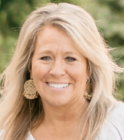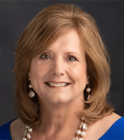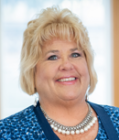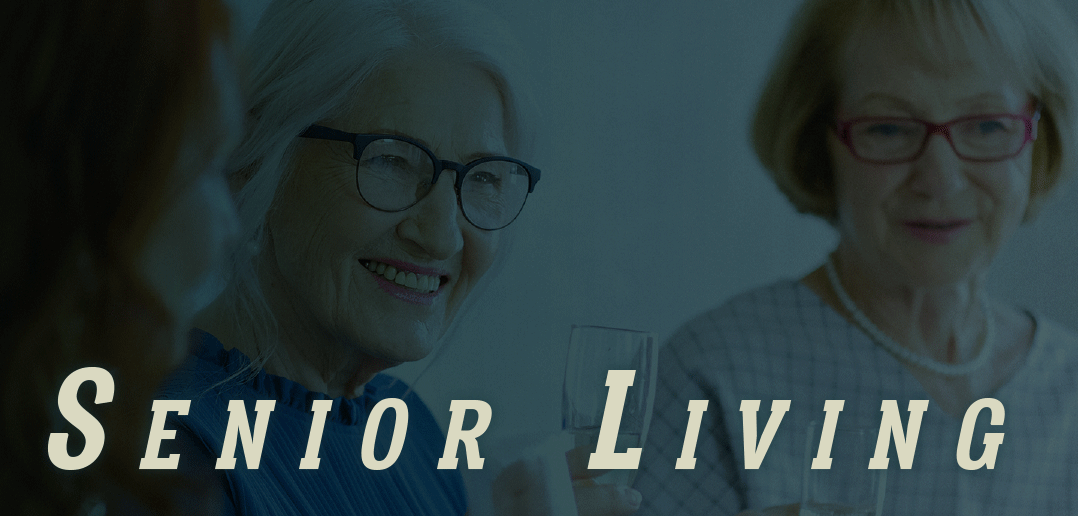The senior care industry confronts significant challenges, including the rapidly growing population of seniors, workforce shortages and the demand for high-quality, individualized care. To address these challenges, a multifaceted approach is essential. This involves investment in workforce development and training to attract and retain caregivers, adopting technology solutions for efficient and personalized care delivery and prioritizing collaboration with healthcare providers to ensure holistic well-being. Person-centered care plans and family involvement play a crucial role in addressing the diverse needs of seniors, promoting their independence and dignity. Meeting these challenges requires a combination of innovation, compassion and a commitment to enhancing the quality of life for our aging population – something that Lincoln businesses do exceptionally well.
One of the key challenges in the senior care industry is the need to hire a sufficient number of qualified caregivers as client bases expand. This challenge stems from the increasing demand for senior care services due to the aging population and the need for skilled and compassionate individuals to provide quality care.
To address this issue, many businesses are actively working on implementing comprehensive recruitment strategies, including competitive compensation packages, ongoing training and development programs and a supportive work environment that values and recognizes the contributions of caregivers. Lincoln is committed to ensuring that as the need for care grows, the high standard of care clients deserve is maintained by attracting and retaining the best talent in the senior care field.

Julie Day
Visiting Angels
At Visiting Angels (visitingangels.com), an exceptional home care service provider, they know the importance of providing exceptional, personalized care – something that starts with the staff they hire. According to Julie Day, the Client Care Coordinator, “The hiring process is ongoing. We work very hard to find caring, experienced caregivers. We may only hire one out of many applicants because we are very particular about who we hire to care for our clients.”
A selective approach to the hiring process is a testament to Visiting Angel’s commitment to providing the highest level of care for their clients. Their discerning standards ensure that those entrusted with the well-being of seniors are not just qualified, but truly dedicated to delivering the quality of care that the agency’s clients deserve. This dedication to excellence in hiring reinforces the agency’s mission to prioritize the well-being and safety of their senior clientele, even as the industry continues to change and the needs of residents change.
With a shortage of caregivers for our beloved seniors comes stress. This shortage amplifies concerns about the quality and availability of care for aging family members who require assistance with daily activities, medical needs or companionship. Family members often face the challenge of finding adequate and reliable care options, leading to heightened anxiety and stress as they strive to ensure their loved ones receive the necessary support and attention. Additionally, seniors themselves may experience stress due to limited access to essential care services, leading to feelings of vulnerability and uncertainty about their well-being and future. The widespread shortage of caregivers adds pressure to an already challenging situation for families and seniors alike, emphasizing the critical need for more support and resources in elder care services.
Fortunately, technological advancements in home-based care services provide a range of tools to support seniors in aging at home while prioritizing their safety and access to essential medical care. These innovative technologies encompass safety monitoring systems that offer round-the-clock surveillance, ensuring immediate assistance in emergencies. Medication management tools aid in organizing and reminding seniors to take their medications correctly, reducing the risk of errors. Additionally, cognitive stimulation programs and devices help maintain mental acuity and engagement. Telemedicine services enable remote access to healthcare professionals, facilitating medical consultations and support from the comfort of home. Together, these technological advancements empower seniors to live independently at home while ensuring enhanced safety measures and better access to necessary medical care.
Seniors benefit greatly from personalized technological care at home, and complementing this with professional home care services like those offered by Worry Free Home Care (worryfreehomecare.org) can further enhance their well-being. With caregivers trained to provide support in activities of daily living, medication management and mobility assistance, among other services, Worry Free Home Care ensures seniors can live at home without worrying about their safety or burdening their loved ones. Their expert caregivers provide comprehensive assistance, fostering a secure and comfortable environment for seniors to thrive independently.

Racheal Odoy
Worry Free
Home Care
Founder Racheal Odoy highlights that their caregivers at Worry Free Home Care aren’t just ordinary professionals; rather, they are dedicated individuals committed to fostering meaningful relationships and creating positive impact. “Our approach extends beyond conventional caregiving, focusing on genuine care and compassion towards seniors. With a profound dedication to the well-being of seniors, we deliver exceptional home care services that reflect genuine concern and commitment to providing personalized and attentive care to each individual we serve.”
Worry Free Home Care understands the importance of communication and collaboration with healthcare providers, family members and other caregivers involved. This coordinated effort fosters a supportive environment, enhancing the quality of care and ultimately reducing stress for the seniors, their families and the caregiving team.
As we age, our bodies and minds undergo various changes, leading to different needs and challenges. Physically, our muscles tend to weaken and our mobility is affected, leading to considerations for accessibility and safety in living environments. Cognitive changes, such as a natural decline in memory and processing speed, may also require a change in living environment for accessibility and safety. However, helping seniors in real estate presents two significant challenges that require a unique approach.

Alicia Chrastil
Nebraska Realty
The first challenge revolves around showing them that a move is genuinely in their best interest for their mental and physical health. According to Alicia Chrastil with Nebraska Realty (nesavvyseniors.com), “It is of utmost importance for seniors to embrace the move as a positive life transition filled with exciting opportunities and new horizons to explore. There are a multitude of wonderful experiences and fresh beginnings awaiting them, which deserve their focus and anticipation.”
Many seniors are emotionally attached to their current homes and are reluctant to embrace change, in part in fear of what the process of moving looks like and means for their possessions. As such, the second challenge lies in helping seniors realize that moving isn’t always negative. For those working with Alicia Chrastil’s team, all possessions are handled delicately, and the emotions of all involved are consistently taken into consideration.
“Our teams’ specialization as senior move experts set us apart, and we offer a transition unlike any move they’ve experienced before,” shared Alicia. “Our team provides access to a network of service vendors and expertly coordinates all aspects from the initial planning stages to the move-in day and beyond. We take them and their families from being overwhelmed to overjoyed on their unique real estate journey.”
Another challenge seniors face is working with a pharmacy that truly has their best interest in mind. Community pharmacies are confronted with a series of formidable challenges in an increasingly value-based healthcare economy even though they are the ones focused on the well-being of each and every person they provide medication for. With retail pharmacies consolidating, the competition and market pressures for independent community pharmacies increases, emphasizing the need for adaptability and innovation in this evolving healthcare landscape.
Community pharmacies, such as Nebraska LTC Pharmacy (neltcpharmacy.com), are adapting to these challenges by implementing several strategies. They are increasingly diversifying their services, such as offering clinical services like vaccinations, health screenings and medication therapy management to demonstrate their value as healthcare providers. Many are also investing in digital health solutions to enhance patient engagement and improve medication adherence, often through mobile apps and telehealth services. Additionally, some pharmacies are exploring niche markets and specialty pharmacy services, leveraging their expertise in specific areas of healthcare.

Shannon Schultz
Nebraska LTC Pharmacy
Nebraska LTC Pharmacy, a locally owned company serving the Lincoln area, distinguishes itself through its commitment to individualized patient care, enhancing safety and supporting seniors’ independence in their homes. Setting themselves apart from large chain stores and pharmacies, Nebraska LTC Pharmacy operates as a concierge pharmacy, prioritizing exceptional customer service and meticulous attention to detail that goes beyond the typical retail pharmacy experience.
“Our goal is to offer a ‘small town’ level of customer service while still providing the highest level of care for our patients,” shared Owner Shannon Schultz. “We take the extra time to put medications into packaging that is extremely easy to use and deliver the medications to doorsteps to help our seniors as much as we can.”
Over-explaining and making things simple isn’t necessarily a bad thing when it comes to senior care. There is a lot going on, and change isn’t easy. By providing clear and detailed explanations, caregivers can help alleviate confusion and reduce stress for seniors. Breaking down information into simple, understandable terms not only facilitates better comprehension, but also empowers seniors to make informed decisions about their care.
One of the first challenges senior living facilities face in regard to explaining care is relaying the difference between Medicaid and Medicare, which is then followed by explaining the actual care they will receive with their specific insurance. Navigating this information early on helps establish transparency and fosters a sense of confidence and security for residents as they embark on their journey in senior living facilities, which is why Emerald Lancaster (lancasteremerald.com) wastes no time explaining everything they can. Their commitment to clear communication contributes to a smoother transition and an overall positive experience for residents and their families.

Bruce Jones
Emerald Lancaster
“Long-term care plans are impacted by insurance, first and foremost, and then by our unique approach to creating connections with your loved ones,” explained Bruce Jones. “By gathering information about the resident’s preferences, our staff can tailor their approach to activities, creating a more personalized experience. This individualized care not only takes into account the practical aspects of insurance coverage, but also focuses on the emotional and social well-being of residents.”
Seniors often face complex situations, and navigating changes can be challenging for them. Clear and detailed explanations not only alleviate confusion but also reduce stress for seniors.
Aside from knowing the differences between insurances in regard to senior living facilities, many people aren’t always aware of or don’t understand how non-medical home care can be a game changer. This form of care provides essential assistance with daily activities and companionship, offering a range of benefits that can significantly improve the quality of life for those who receive it.
First and foremost, non-medical home care allows individuals to remain in the comfort and familiarity of their own homes, preserving their independence and dignity. It offers personalized support tailored to the specific needs and preferences of the recipient, ensuring that the care is truly individualized. The flexibility of non-medical home care services is another crucial aspect. Care plans can be adjusted as needs change, ensuring that the level of care remains appropriate over time.

Rhonda Saunders
AmanaCare
Rhonda Saunders with AmanaCare (amana-care.com) shared, “I believe in educating the community through advertising, Facebook, community education, networking and sharing with everyone I meet the benefits of in-home care. I know it helps people to stay in their own home, giving them and their family members’ peace of mind.”
Having worked in the hospice world for eight years, Rhonda has heard countless people wish they would have started in-home care sooner. Non-medical home care isn’t hospice, but like hospice, once clients start receiving care, they will state the same: wishing they had started sooner. Sometimes, delaying much needed extra care in the home can take a toll that’s difficult to recover from. For instance, if poor nutrition is an issue, a caregiver can help with grocery shopping, meal preparation and even keeping the client company while they dine. Food always tastes better with good company. If malnourishment sets in, this can lead to a plethora of health issues, and a domino effect can begin.
At AmanaCare In-Home Assistance, they are able to provide anywhere from two hours a week up to 24 hour care seven days a week. Every person they care for has unique needs and that’s what they do best – discovering and meeting those needs!

Renee Pickerel
Legacy Retirement
Choosing the right care for a loved one can be stressful. Especially during the holiday season when family is of utmost importance, seniors can struggle. Sometimes they are unable to attend gatherings, even if they want to. As such, Renee Pickeral, the Executive Director at Legacy Arbors (legacyretirement.com), suggests keeping our expectations reasonable.
“Our loved one may be tired and not want to participate, it may be too stressful for them, or maybe they are unable to participate in a big party and need to have a smaller get-together. Know what your loved one can manage and will enjoy, because the holidays need to be planned according to their needs and abilities. This may even bring a new holiday tradition!” said Renee.
Keeping stress low is an ongoing challenge as senior living communities aren’t one-size-fits-all. To cater the various needs of residents, Legacy has introduced innovative approaches to enhance resident engagement, prioritize their happiness, promote activity, and support overall well-being. They’ve invested in creating elaborate outdoor patio spaces and added recreational elements like a shuffleboard table. Moreover, Legacy’s enrichment staff actively engages with residents, fostering connections and ensuring a more enjoyable experience. By adopting these new routines, Legacy has opened up opportunities for increased fun and social interaction among its residents, contributing positively to their quality of life.
In the dynamic landscape of senior care, the growing emphasis on life enrichment is particularly vital due to the unique needs of elderly individuals and the challenge of isolation. Recognizing and addressing these distinctive requirements is crucial for providing comprehensive and effective care. Life enrichment programs tailored to seniors’ unique needs go beyond generic approaches, taking into account factors such as varying levels of mobility, cognitive abilities and individual interests.

Dan Klein Jr.
The Waterford
Communities
At Waterford Communities Assisted Living and Memory Care (thewaterford.net), there are special activities that fit with what each person likes, so everyone can join in and feel part of the group. The staff pays close attention to what each resident needs, making personalized plans for care. This is important for anyone looking for top-notch senior care – not just making sure things are okay, but making sure each person is happy and taken care of in a way that suits them.
Dan Klein Jr., Owner of the Waterford Communities, highlights the importance of social connection in assisted living communities as a significant benefit. He emphasizes the efforts these communities make to prevent social isolation in seniors. “We encourage residents to engage in various group activities like movie nights, card games, book clubs and crafting sessions. If your family member needs support or is feeling isolated, consider exploring our assisted living options. We’re confident they’ll feel right at home in our communities, where fostering social connections is a top priority.”
Building relationships is also a priority for Caring Friends In Home Care (caringfriends.com), where they acknowledge the challenges seniors face in retaining independence. Emphasizing a person-centered approach, Caring Friends caregivers make a genuine effort to understand the distinct needs and preferences of each client to help them maintain as much independence as possible without sacrificing their quality of life. This commitment to open dialogue and personalized care contributes significantly to enhancing the quality of life for seniors receiving in-home care.

Virginia Cole
Caring Friends in Home Care
According to Virginia Cole, the COO of Caring Friends In Home Care, the organization is unwaveringly dedicated to providing care that reflects both compassion and a deep understanding of each individual’s specific needs and desires. Caring Friends is adept at crafting personalized plans of care and services to cater to the unique requirements of each person.
“Independence is often synonymous with a sense of control, self-reliance and freedom, and its decline can impact various aspects of a senior’s life. This loss can affect their emotional well-being, leading to feelings of frustration, helplessness and even sadness. In the context of caregiving, preserving and promoting independence becomes a key goal, and our caregivers strive to find a balance that allows seniors to maintain control over aspects of their lives while providing necessary support where needed,” shared Virginia.
Independent retirement living is about giving seniors the freedom to choose how they want to live. Independent retirement living embodies choices, flexibility and freedom for older adults. It involves empowering seniors to make choices about their daily lives, health and well-being, fostering a sense of control and self-determination. Independence respects individual preferences and desires, allowing seniors to participate in decision-making and engage in activities that bring them joy and fulfillment.
Savannah Pines (rlcommunities.com) has been thoughtfully designed to prioritize comfort and independence for its residents, offering a variety of different floor plans to fit everyone’s needs. Each apartment is crafted to enhance independent living and comfort, featuring amenities like window coverings, climate-controlled thermostats, spacious closets and well-equipped kitchens furnished with full-sized appliances. These elements are tailored to cater to the residents preferences, ensuring a homely and convenient living space.
The standout feature of this facility, however, is the presence of a live-in community manager team. Their managers are your neighbors and live on-site to ensure residents are happily enjoying their best retirement life. By having a team available at all times, they take care of various responsibilities, allowing residents and their families peace of mind and security, so they can focus on enjoying their lives to the fullest without worrying about the maintenance of daily life. This on-site support creates a reassuring and comfortable environment, promoting a stress-free living experience for all residents and their families.
Lincoln Housing Authority (l-housing.com) also prioritizes senior independence, offering “more than housing.” Recognizing the diverse needs of seniors, the Lincoln Housing Authority goes beyond providing physical accommodations. They actively work towards empowering seniors by offering a range of services and programs designed to support independence and improve overall well-being. By prioritizing senior independence, the Lincoln Housing Authority strives to create an environment where seniors can maintain autonomy, engage in activities they enjoy and access the necessary support systems to lead fulfilling lives within their housing communities.
Burke Plaza, Crossroads House and Mahoney Manor collectively accommodate over 270 seniors, offering an array of social and personal support services through the Resident Services and Congregate Housing Services programs. These facilities aim to provide residents with comprehensive access to a diverse range of amenities and resources, ensuring that their needs are met effectively and promptly.
The cornerstone of the Resident Services Program lies in the role of the Resident Services Specialist at each building. Their primary responsibility involves providing comprehensive support to residents while curating diverse activities and programs aimed at enriching and improving the overall quality of life within each community. By actively engaging with the residents and understanding their preferences and challenges, the Resident Services Specialist works diligently to create an inclusive and enriching living environment.
Memory care assisted living communities fulfill a vital role in providing specialized support for individuals affected by Alzheimer’s and related conditions – who cannot live independently. However, effectively treating and managing these conditions poses a significant challenge due to their complex nature and the need for personalized care and interventions tailored to each individual’s specific needs.
High Plains Alzheimer’s Special Care Center (frontiermgmt.com) adopts a holistic care strategy that excels in handling the complex behaviors often linked to Alzheimer’s. Through adeptly trained personnel and a secure setting, they establish a safe and organized environment for residents. Tailored care plans address individual needs, covering daily support, medication supervision and stimulating cognitive and physical activities to ensure personalized care and well-being.
High Plains prioritizes creating a welcoming and amiable environment, significantly impacting residents’ well-being. Through community-building efforts and a commitment to instilling purpose in residents’ lives, they alleviate feelings of isolation, anxiety and depression commonly linked to memory loss. Regular family communication keeps loved ones informed about their relative’s progress and any shifts in their condition, empowering families to make choices aligned with their loved one’s needs in Alzheimer’s or dementia care.
Once your loved one is to the point they need senior living, it is also important to consider funeral arrangements for when the time comes. Discussing and arranging funeral plans in advance is a vital step for individuals diagnosed with dementia, and even for those otherwise healthy. These conversations should occur while the person is still capable of participating and making decisions. This proactive approach enables seniors to articulate their preferences for their funeral and burial, ensuring their wishes are honored and alleviating loved ones of the emotional strain of making these choices during a challenging period. Pre-planning offers peace of mind to both the individual and their family, serving as a compassionate way to honor the person’s desires when the inevitable time arrives.
When initiating the challenging conversation, according to Wyuka Funeral Home & Cemetery (wyuka.com), maintaining an open-minded approach is crucial. Practicing empathy is key while navigating this dialogue. Strive to comprehend the sensitivity and viewpoint of your loved one and offer frequent support and reassurance. The ultimate aim is to reach a decision on a plan, ensuring that this doesn’t compromise the comfort of those involved in the process. There’s no need to ‘schedule’ a conversation to avoid upsetting those involved. It’s okay to be subtle and create an ongoing conversation on the topic of prearrangements.
The senior care industry faces considerable hurdles such as the escalating senior population, workforce shortages and the call for superior, personalized care. Tackling these challenges demands a multifaceted approach. This involves investing in caregiver development, embracing technology for efficient care and fostering collaborations with healthcare providers. Prioritizing person-centered care plans and involving families is crucial in catering to diverse senior needs while upholding their independence and dignity. Lincoln businesses exhibit exceptional innovation, compassion and dedication to enhancing the quality of life for our aging population, showcasing a commitment to addressing these pressing challenges in senior care.

